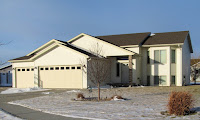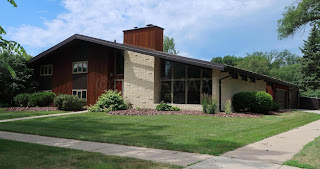Tax Implications of Selling a Second Home
Warmer weather is coming... and my thoughts are turning to lake country! A second home at the lake is a great vacation spot, source of rental income, or simply an investment. But what if you want to sell this second home? There are some tax implications that you may not be aware of.
--------------- KIMBERLY VAN HAL | Good to Know® ---------------
 The Issue of Capital Gains
The Issue of Capital Gains
Capital gains are the profits from the sale of a second home. The law allows up to a $500,000 profit ($250,000 for singles) tax-free if you sell your primary home. However, capital gains tax kicks in on profits earned from selling a second home. Capital gains are taxable at both the federal and state levels.
Currently, the majority of federal tax filers are subject to a 15% long-term capital gains rate. The country's highest earners are subject to a 20% rate.
While the federal government taxes capital gains at a lower rate than the regular personal income, states usually tax capital gains at the same rates as regular income. Minnesota's rates are some of the highest in the nation. It's uppermost tax rate is 9.85%.
So, in total,the seller of a second home could be looking at paying nearly 30% in taxes. It may be beneficial to live in the property for at least two years as a primary residence before selling.
Capital gains are the profits from the sale of a second home. The law allows up to a $500,000 profit ($250,000 for singles) tax-free if you sell your primary home. However, capital gains tax kicks in on profits earned from selling a second home. Capital gains are taxable at both the federal and state levels.
Currently, the majority of federal tax filers are subject to a 15% long-term capital gains rate. The country's highest earners are subject to a 20% rate.
While the federal government taxes capital gains at a lower rate than the regular personal income, states usually tax capital gains at the same rates as regular income. Minnesota's rates are some of the highest in the nation. It's uppermost tax rate is 9.85%.
So, in total,the seller of a second home could be looking at paying nearly 30% in taxes. It may be beneficial to live in the property for at least two years as a primary residence before selling.
Tax Exceptions for Selling a Second Home
The Housing and Economic Recovery Act of 2008 states that, while you can still claim your second property as your primary home before it's sold, you'll owe taxes for the time that the house was a second home after January 1st, 2009. The calculation of this tax is based on the years you lived in the house as your primary residence versus the years the property was used for other purposes, like as a rental. This is the amount of capital gain that will be taxed from the profit of the sale of the house.
The Housing and Economic Recovery Act of 2008 states that, while you can still claim your second property as your primary home before it's sold, you'll owe taxes for the time that the house was a second home after January 1st, 2009. The calculation of this tax is based on the years you lived in the house as your primary residence versus the years the property was used for other purposes, like as a rental. This is the amount of capital gain that will be taxed from the profit of the sale of the house.
You May Qualify for a 1031 Exchange Tax Deferment
A 1031 Exchange is an arrangement where the seller of the second home exchanges an investment property or rental house for another investment property or rental house, of equal or greater value, with tax deferments.
This can be appealing to some sellers because they might be able to work around paying capital gains tax through the property swap. In order to qualify for a 1031 Exchange, a house has to be considered a rental house, not a primary residence. The house must be rented out for at least 15 days and used by the owner for less than 14 days, or 10% of the total days the property was rented.
A 1031 Exchange is an arrangement where the seller of the second home exchanges an investment property or rental house for another investment property or rental house, of equal or greater value, with tax deferments.
This can be appealing to some sellers because they might be able to work around paying capital gains tax through the property swap. In order to qualify for a 1031 Exchange, a house has to be considered a rental house, not a primary residence. The house must be rented out for at least 15 days and used by the owner for less than 14 days, or 10% of the total days the property was rented.
Seek Professional Advice
If you decide to sell your second home, be sure to know the facts before selling and seek professional advice from an estate planner or accountant.



Comments
Post a Comment